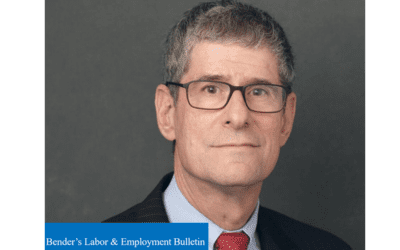Mark DeBofsky, founding attorney of DeBofsky Law, was recently featured in a Law360 article titled 3 Attorney Takeaways On What’s Ahead As ERISA Turns 50. As ERISA (Employee Retirement Income Security Act) marks its 50th anniversary, Mark shared his insights on how courts are currently processing ERISA health and welfare benefit claims.
In the article, Mark addresses a critical issue regarding how administrative law standards are applied to insurance disputes under ERISA. He explains, “Courts have been treating these claims like administrative law cases. Except in states where discretionary clauses are banned, courts defer to the decisions made by insurance companies if policies give them interpretive authority.”
Mark emphasizes that this approach is flawed, noting, “Courts have forgotten that insurance companies are not the same as federal administrative law judges.” His commentary highlights growing concerns about how ERISA claims are mishandled under this framework, stressing the need to reassess the standards applied in such cases.
Mark’s contribution highlights DeBofsky Law’s ongoing commitment to advocating for the fair treatment of claimants and pushing for necessary reforms in ERISA litigation.
Read the full Law360 article here.







